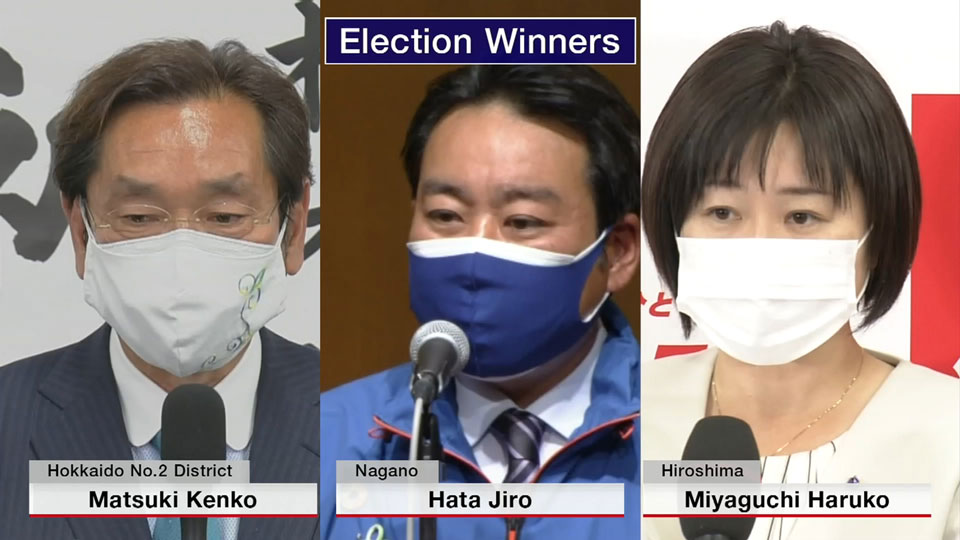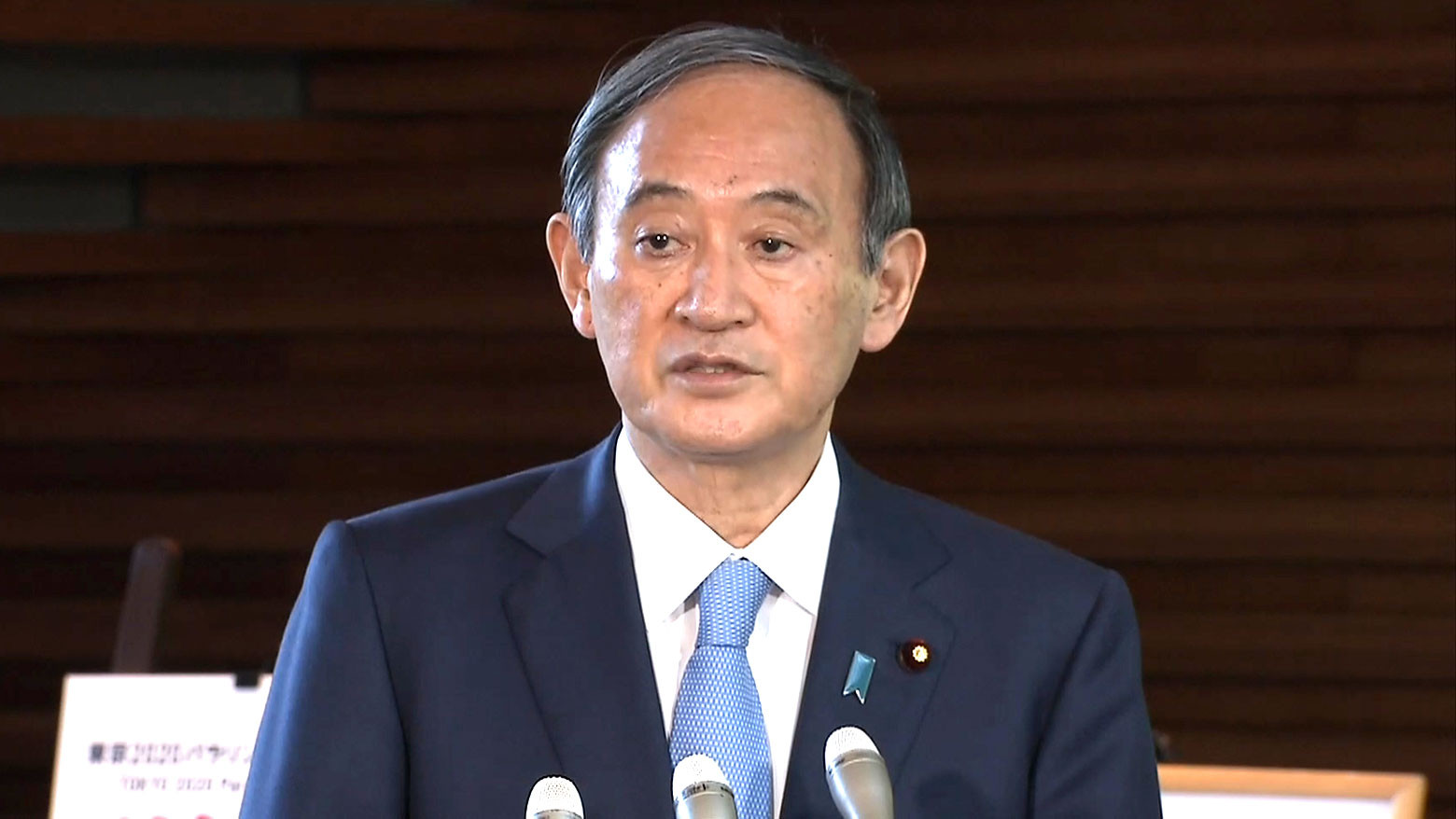The results are likely to impact Suga's decision on when to dissolve the lower house and call a national election, which must be held on or before October 21. Public support for his administration has taken a hit over the handling of the coronavirus pandemic.
Candidates backed by opposition parties won a re-held upper house election in the Hiroshima constituency, an upper house by-election in the Nagano constituency, and a lower house by-election for the No. 2 district in Hokkaido.
The LDP did not field a candidate in the Hokkaido contest. The seat was vacated by a former LDP lawmaker who stood down in a bribery scandal.
The Hiroshima vote also stemmed from controversy, with an LDP lawmaker being forced to quit over vote-buying.
In Nagano, the sitting member, a former land minister, died following a coronavirus infection.

Suga says he accepts the people's verdict and will examine what it means for the party. “We will analyze the loss, and correct what needs to be corrected," he told reporters.
In the meantime, Suga has one focus: "Our belief that measures against the coronavirus must be our top priority will not change."
The leader of the main opposition Constitutional Democratic Party says voters are dissatisfied on two key fronts: "I think people wanted to put an end to the ruling party's current coronavirus strategy, and its money-driven politics,” said Edano Yukio.
NHK understands there is disagreement within the ruling camp about whether the poor result is a reflection of Suga's leadership or of local issues within the three constituencies.
The Olympic factor
Suga’s term as president of the LDP, the role that makes him Prime Minister, expires at the end of September and he will need to face a party vote. It’s widely expected that he will call the general election before that, in the hope that a strong national result will see him remain at the helm.
But he’s likely to wait until after the Olympics and Paralympics, which finish on September 5. If the Games are a success, Suga and the LDP could harness the feelgood factor.
That strategy appears to be a gamble in the current climate, though. Japan’s third state of emergency took effect this week in Tokyo, Osaka, Hyogo and Kyoto prefectures and is scheduled to end after the spring holiday season, on May 11.
Suga may need to extend the declaration if it fails to bring the virus under control. That would exacerbate public discontent, and, coupled with rising infections, place the Olympics -- and his electoral hopes — in jeopardy.

